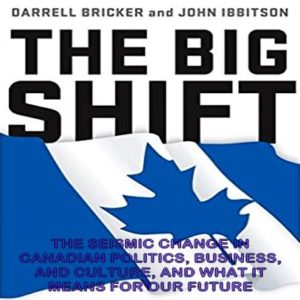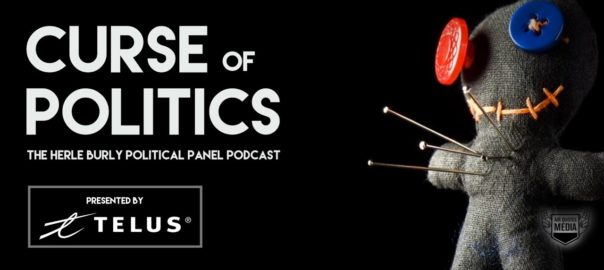
For 9 long years, Canadian politics underwent a tectonic shift that for the longest period of time since Confederation seemingly buried the liberal elites of yesteryear, during the era of Stephen Harper’s reign as Canada’s Prime Minister.
The thesis propounded by conservative Globe and Mail columnist, John Ibbitson, and pollster Darrell Bricker, Global CEO of Ipsos Public Affairs Research, is that Canada is undergoing a fundamental shift (the eponymous “Big Shift”) that in the 21st century will result in a reformation of Canadian politics, governance, economy and values. The authors argue in their book that the Conservative Party of Canada is the political force best poised to take advantage of this changing landscape, and over the years and in the coming decades will be transformed into what was once the purview of the Liberal Party: the natural governing party of Canada.
Bricker and Ibbitson argue that one of the world’s most consensual countries is becoming polarized, exhibiting stark differences between East and West, cities and suburbs, Canadian born citizens and immigrants. The “winners” — in both politics and business — will be those who can capitalize on these momentous changes.
For almost its entire history, Canada has been run by the political, media and business elites of Toronto, Ottawa and Montréal. For nine long, arduous years, though, these groups lost their power — without most of them realizing their power was on the wane. The Laurentian Consensus, the term John Ibbitson has coined for the dusty liberal elite, had been replaced by a new and powerful coalition based in the West and supported by immigrant voters in Ontario. How did this happen?
So far in the 21st century, though, the Conservatives have governed for only 9 of 21 years. Despite their dispiriting election losses in the 2015 and 2019 federal elections, the Conservative Party has nonetheless continued to remain strong in northern British Columbia, Alberta, Saskatchewan and Manitoba, in the rural regions of Ontario, and has even shown strength in Québec — but not in the Maritimes.
In his review in The Globe and Mail of John Ibbitson and Darrell Bricker’s book, The Big Shift, journalist and academic Christopher Dornan writes …
“The Big Shift, as its title suggests, is one of those books that purports to divine a single, telling fact to explain Canada. If that fact echoes Jacques Parizeau’s infamous 1995 comment about “money and the ethnic vote,” it is not, as Bricker and Ibbitson advance it, a form of bigotry, but a species of determinism: The political values, and therefore voting tendencies, of new arrivals and first-generation Canadians are contingent on their race and region of origin.
Further, this “Big Shift in power to the West and to suburban immigrants” is not only permanent but “will make Canada inexorably a more conservative place.” Resistance is futile. Bad news for progressives, whether they manage to unite or not. They’re on the wrong side of a fundamental and irreversible demographic shift.”
While both of the book’s authors take great pains to stress that they’ve merely set out to document a “seismic shift” in the demographics of Canada, and what it portends for the political, social and economic future of our nation, for most who would read the book and interpret its internal thesis, from the book’s outset through til its end, it would be difficult to ignore the sense of triumphalism evident throughout Ibbitson and Bricker’s polemical treatise, as if somehow the shift to the “new” — and increasingly right wing — Conservative Party is inalterably inevitable.
“It’s one thing for the Conservative Party to chafe and protest when in opposition,” writes Dornan. “But, if Prime Minister Stephen Harper’s style of government — which might best be described as “undertaken in a spirit of spite” — offers an example of what Canadians might expect from a Conservative government, it is entirely likely that a goodly number of our fellow citizens would find this approach to governance to be untenable, particularly in a country populated by families who came here to escape entrenched antagonisms. If that ever changes, then the Canada we all love — left and right, newcomer or born-and-bred — will be truly at risk.”
When Canadians go to the advance polls to cast a ballot this week, or to their polling station on Election Day, Monday, September 20th, Canadians must vote not just for the Prime Minister and the government of their choice, but for the future of Canada — our most cherished home — and the uniquely Canadian values of fairness, respect, compassion, equality, inclusion, diversity, safety, peace, and for being there for one another, as collectively we seek to create a more sustainably just Canada for everyone. As in every election, there is in 2021 a great deal on the line.
